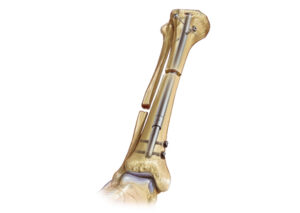Key Pointers:
- Severe knee, hip, or shoulder pain often arises from osteoarthritis, injury, or rheumatoid disease.
- Consider surgery when meds, injections, and physiotherapy no longer restore function.
- Joint replacement can relieve pain and improve mobility with modern, tissue-sparing techniques.
- Rehabilitation plans support safer, steadier recovery and long-term outcomes.
- Consult an experienced joint replacement surgeon to match your lifestyle goals.
Without you realising, joint pain can grow into something serious. To the point where it starts affecting how you walk, sleep, or even enjoy your daily routine. If you’ve tried pain relief methods and physical therapy but still find yourself limited by stiffness and discomfort, it might be time to consider joint replacement as a treatment option.
Persistent Joint Pain
If you’re dealing with pain in your knee, hip, shoulder, or any other joint that sticks around for weeks or even months, despite trying rest, ice, and over-the-counter meds, it could point to conditions like arthritis, cartilage damage, or an injury that needs a closer look.
Why Joint Pain Happens
Joint pain can arise from a variety of conditions. The most common causes include:
- Osteoarthritis: This age-related wear and tear of the cartilage is a leading cause of joint pain, especially in the knees, hips, and shoulders.
- Rheumatoid arthritis: An autoimmune condition that causes chronic inflammation in the joints.
- Injuries or fractures: Past trauma to a joint can lead to long-term damage and pain.
- Degenerative joint disease: Progressive damage that worsens over time, reducing mobility and quality of life.
Initially, symptoms may be manageable, but as the condition progresses, joint replacement may become a realistic and beneficial solution.
When Is Joint Replacement an Option?
If your joint pain is no longer relieved by medication, injections, or therapy, and it interferes with everyday activities such as walking, climbing stairs, or sleeping. It may be time to speak with a joint replacement surgeon.
Signs that surgery might be right for you include:
- Persistent pain despite non-surgical treatment
- Joint stiffness and reduced range of motion
- Difficulty performing normal tasks
- X-rays showing severe joint damage
Joint replacement isn’t just about relieving pain; it’s also about restoring function, improving mobility, and reclaiming your lifestyle.
What Happens During a Joint Replacement?
Joint replacement surgery involves removing the damaged parts of the joint and replacing them with prosthetic components designed to mimic natural movement. It’s most commonly performed on knees, hips, and shoulders.
Modern joint replacement techniques prioritise minimally invasive methods, which can result in smaller incisions, faster recovery, and less discomfort post-surgery. Your joint replacement surgeon will assess your condition and lifestyle before recommending the most suitable approach.
Recovery typically involves a combination of rest, physical therapy, and gradual return to activity. Many patients report a significant improvement in mobility and quality of life after surgery.
Choosing the Right Surgeon Matters
When considering joint replacement, experience and expertise make a difference. A skilled joint replacement surgeon doesn’t just operate. They also guide you through pre-surgical planning, post-op recovery, and long-term care.
Dr. Sarbjit Singh is a Senior Consultant Orthopaedic Surgeon at Advance Orthopaedics, can help you create personalised care. From the first consultation to your rehabilitation journey, you’ll have the support of a team committed to helping you move better, with confidence.
Take the First Step Towards Pain-Free Living
Regain the freedom to move without pain. Schedule an appointment with Dr. Sarbjit Singh at Advance Orthopaedics, and get a clear, personalised plan from an orthopaedic surgeon who understands your needs.











